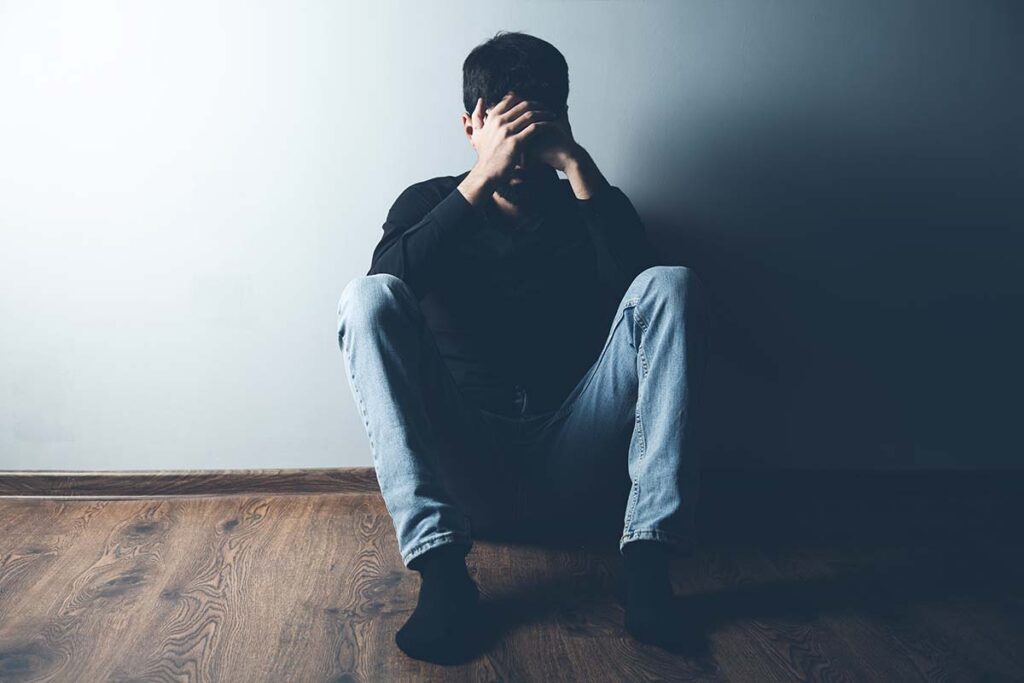Relapse happens when someone in recovery regresses and takes that first drink, smokes that first crack, or swallows that first pill. Relapse can happen to anyone, regardless of how badly you want to recover. You might think it’s because you found yourself in a risky situation, such as inside a barroom, but in reality, relapse is a multi-step process that’s a long time coming. That first drink is just the inevitable result. Because of this, it’s vital to guard against the relapse process by practicing relapse prevention therapy techniques in daily life. To learn about our young adult treatment programs and relapse prevention, contact Red Oak Recovery® today at 866.457.7590.
What Causes Relapse?
When you relapse, you may feel as though you’ve jeopardized all the hard work you’ve put into your recovery. Still, you’re not alone in wavering. Millions of people experience a relapse during recovery. In truth, it’s simply a part of the process for many individuals. Relapse is not synonymous with failure; rather, it results from forgetting to work your recovery program daily. When you don’t actively practice your relapse prevention techniques, the process of relapse begins. It may be months before it takes root, but eventually, without the help of daily recovery behaviors, there’s an excellent chance the old behaviors will return. We call this relapse.
The Relapse Process Defined
Relapse begins small. Perhaps you miss recovery meetings or talk with old friends who still use substances From there, your desire to use again gets more intense. The three stages of relapse include:
- Emotional
- Mental
- Physical
Relapse prevention techniques can help keep you from entering the relapse process at any stage.
Emotional Relapse
During an emotional relapse, you begin bottling up your emotions instead of sharing them. You may become anxious or stressed. This is the stage where you begin to cut yourself off from positive influences in your life and lean toward isolation. During an emotional relapse, you’re not thinking about using, but your life is reverting to that same unmanageable state. Signs you may be in emotional relapse include:
- Missing meetings
- Talking less frequently with mentors
- Skipping appointments with your counselors
- Withdrawing from healthy influences
Mental Relapse
During a mental relapse, those old feelings return. Because you’ve cut yourself off from your support network, there’s nothing to ease them. You may go back and forth with yourself, deciding whether you want to using substances again. You may miss the culture and the people you hung out with before entering recovery. Signs of mental relapse include:
- Cravings
- Frequent thoughts about using
- Fraternization with old friends who still use
Physical Relapse
During the physical stage, you’ve begun visiting your old stomping grounds. You may hang out with the people from your old life. Your cravings become stronger until you cave and take that first drink. Signs of physical relapse include:
- Using
- Giving up on recovery
- Addiction
Relapse Prevention Techniques
Relapse prevention techniques include those recovery behaviors you learned during treatment. You must use them in daily life and practice them consistently. They include:
- Attending regular support meetings
- Talking regularly with mentors and sponsors
- Refraining from putting yourself in risky situations
- Talking to safe people about stressful situations
- Exercising, eating well, and getting enough sleep
If you need help with relapse prevention, Red Oak Recovery® in North Carolina is available. We offer a wide array of holistic and evidence-based therapy programs, which we can tailor to your unique needs. Our addiction therapy programs include:
- Cognitive-behavioral therapy
- Dialectical behavior therapy
- Group therapy
- Individual therapy
- Experiential therapy
Contact Red Oak Recovery® today at 866.457.7590 for more information regarding our relapse prevention techniques.









